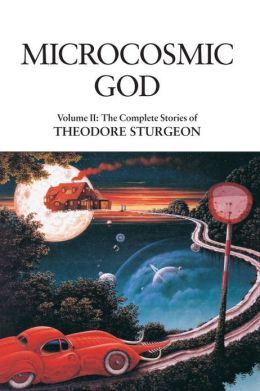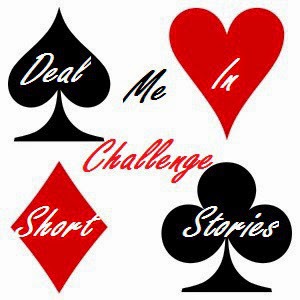Literature

In his introduction to The Complete Stories of Theodore Sturgeon Vol. I, renowned Science-Fiction/Fantasy author Gene Wolfe writes, "The first [sf] story I read was 'Microscopic God' by Theodore Sturgeon. It has sometimes occurred to me that is has all been downhill from there." High praise, indeed. However, I must disagree with Mr. Wolfe's estimation of this particular short-story, which to my mind, is not nearly deserving of such a distinguished accolade. Surely, the story is adequate enough and contains certain positive attributes but let's be reasonable: there are so many better short-stories from this genre out there. Clearly, such an argument is a matter of personal opinion. While I do appreciate Sturgeon's attempt to deliver an interesting spin on 'mad scientist playing God' story-line, which goes far back as Mary Shelley's Frankenstein, the writing is choppy, sporadic and wildly uneven; more often than not coming across as amateurish. Perhaps Sturgeon can be forgiven for these blunders since this was one of his earliest attempts at writing, first published in"Astounding Science-Fiction" in 1941. With the outbreak of WWII, it is interesting to view this work within a social and historical context. The rapid advancement of nuclear technology proved to be a dangerous threat to the extinction of humanity and Sturgeon's work can certainly be interpreted as a parable or allegory, suggesting a certain level of fear for the future because of these scientific developments.
In 1984, Sturgeon commented on Microcosmic God:


- Top Ten Tuesday: Top Ten Books For Readers Who Like Science-fiction
It's Tuesday, so you know what that means. This week's topic for a Top 10 list hosted by The Broke and the Bookish is an exciting one: Top Ten Books for Readers Who like _______. I decided to go with Science-Fiction. For those who...
- Theft Of Swords By Michael J. Sullivan
?I like any plan where I don?t die a horrible death.? Never judge a book by its cover right? Well, guilty as charged. I don't really read a lot of fantasy novels and Michael J. Sullivan's Theft of Swords -- the first volume of the Riyria Revelations...
- To Marry Medusa By Theodore Sturgeon
Dammit Sturgeon, why do you have to wrack my brain and render me ineffable with your relentless command of language, compassion for humanity and perplexing stories? A novel pulsating with subtle complexities and introspective ideas, it demands to be...
- Ubik By Philip K. Dick
Ubik is one of those rare astonishing science fiction novels filled to the brim with such perplexing and fascinating ideas but is actually supported by the author's literary flair and authoritative story telling abilities. How the hell does this...
- A Canticle For Leibowitz By Walter M. Miller Jr.
It took me a lot longer to finish than novel than initially expected since Miller's prose tends to be a little bit clunky and objectively detached for my tastes although it does suit the context of the novel: A epic and bleak historical post-apocalyptic...
Literature
Deal Me in Challenge: Microcosmic God by Theodore Sturgeon

Card Drawn: Jack of Spades.
Theodore Sturgeon is one of those dominating figures of the Science-Fiction genre who has yet to really impress me. Prior to this short-story, I had read two of his novels: Marry to Medusa and More Than Human--both decent but lacking a certain level of finesse that would otherwise propel him to greatness in my eyes. Sturgeon's ideas and unique approach to the genre is far more appealing to me than his actual writing.
In his introduction to The Complete Stories of Theodore Sturgeon Vol. I, renowned Science-Fiction/Fantasy author Gene Wolfe writes, "The first [sf] story I read was 'Microscopic God' by Theodore Sturgeon. It has sometimes occurred to me that is has all been downhill from there." High praise, indeed. However, I must disagree with Mr. Wolfe's estimation of this particular short-story, which to my mind, is not nearly deserving of such a distinguished accolade. Surely, the story is adequate enough and contains certain positive attributes but let's be reasonable: there are so many better short-stories from this genre out there. Clearly, such an argument is a matter of personal opinion. While I do appreciate Sturgeon's attempt to deliver an interesting spin on 'mad scientist playing God' story-line, which goes far back as Mary Shelley's Frankenstein, the writing is choppy, sporadic and wildly uneven; more often than not coming across as amateurish. Perhaps Sturgeon can be forgiven for these blunders since this was one of his earliest attempts at writing, first published in"Astounding Science-Fiction" in 1941. With the outbreak of WWII, it is interesting to view this work within a social and historical context. The rapid advancement of nuclear technology proved to be a dangerous threat to the extinction of humanity and Sturgeon's work can certainly be interpreted as a parable or allegory, suggesting a certain level of fear for the future because of these scientific developments.
In 1984, Sturgeon commented on Microcosmic God:
"I have always disliked this story--not for its basic idea, which has been called unique, but for its writing. Just out of my teens, I had not yet learned that nobody is ever and altogether good and nobody is all bad. Ignorant of that, one can produce 100% purified vintage dyed-in-the-wool cardboard characters."
I couldn't have summed up my position on this story any better. The author's self-criticism and bold honesty deserves the utmost respect. He admits to being an obstinate young writer prone to making mistakes, which included weak writing and "dyed-in-the-wool cardboard characters." What a wonderful expression: Dyed-in-the-wool. I'll have to try and use that expression in casual conversation more often. But I digress, Sturgeon touches upon the main problems with this story: the writing is poor and the characters are flat. The story starts off with a very interesting premise but quickly dissolves into absurdity. A highly inventive biologist creates a species of super-intelligent micro-organisms (hence the title of the story) that he names "Neoterics," capable of adapting to any type of environment and able to make scientific breakthroughs at such a high speed beyond human capacity. He lives on an isolated island, cut off from the larger world. He spends most of his time in the laboratory, observing and experimenting with his fascinating new "children" as their intelligence evolves at an accelerated rate. His financial backer is a devious banking executive who becomes a very powerful figure in the world through the scientist's many inventions. This introverted scientist is only interested in the advancement of human knowledge; he cares nothing about financial gain and only wants to be left alone. Unfortunately, the banker has different plans for him and is compelled to use the scientist as a pawn for his diabolical plans for world domination. This is where the story becomes downright silly and preposterous, which is a shame because there is so much potential gone to waste.
Since the writing is mediocre at best, the narrative and characters follow a similar pattern. Instead of a well-told story, the end result is a bloated, cheesy and incongruous collection of scenes and ideas. Reading this story felt like sitting through one of those incredibly lame Science-Fiction B-Movies with numerous plot-holes and hokey acting that makes you wonder if the people involved were all hopped up on psychedelics during film-making. Science-fiction demands the suspension of belief on the part of the reader more so than many other genres but unfortunately, the narrative here gets bogged down in trivialities, often meandering interminably without a clear sense of purpose. For a short-story, it's actually quite lengthy. Sturgeon could have really used a better editor but that might not even have saved the story from imploding on itself. Despite these numerous flaws, the story has one redeeming quality: the Neoterics. These are fascinating creatures and Sturgeon's creative inventiveness shines through. I only wish he had focused more on exploring the relationship between the scientist and these highly-intelligent beings instead of shifting gears towards the unfolding of a zany plot.
Since the writing is mediocre at best, the narrative and characters follow a similar pattern. Instead of a well-told story, the end result is a bloated, cheesy and incongruous collection of scenes and ideas. Reading this story felt like sitting through one of those incredibly lame Science-Fiction B-Movies with numerous plot-holes and hokey acting that makes you wonder if the people involved were all hopped up on psychedelics during film-making. Science-fiction demands the suspension of belief on the part of the reader more so than many other genres but unfortunately, the narrative here gets bogged down in trivialities, often meandering interminably without a clear sense of purpose. For a short-story, it's actually quite lengthy. Sturgeon could have really used a better editor but that might not even have saved the story from imploding on itself. Despite these numerous flaws, the story has one redeeming quality: the Neoterics. These are fascinating creatures and Sturgeon's creative inventiveness shines through. I only wish he had focused more on exploring the relationship between the scientist and these highly-intelligent beings instead of shifting gears towards the unfolding of a zany plot.


- Top Ten Tuesday: Top Ten Books For Readers Who Like Science-fiction
It's Tuesday, so you know what that means. This week's topic for a Top 10 list hosted by The Broke and the Bookish is an exciting one: Top Ten Books for Readers Who like _______. I decided to go with Science-Fiction. For those who...
- Theft Of Swords By Michael J. Sullivan
?I like any plan where I don?t die a horrible death.? Never judge a book by its cover right? Well, guilty as charged. I don't really read a lot of fantasy novels and Michael J. Sullivan's Theft of Swords -- the first volume of the Riyria Revelations...
- To Marry Medusa By Theodore Sturgeon
Dammit Sturgeon, why do you have to wrack my brain and render me ineffable with your relentless command of language, compassion for humanity and perplexing stories? A novel pulsating with subtle complexities and introspective ideas, it demands to be...
- Ubik By Philip K. Dick
Ubik is one of those rare astonishing science fiction novels filled to the brim with such perplexing and fascinating ideas but is actually supported by the author's literary flair and authoritative story telling abilities. How the hell does this...
- A Canticle For Leibowitz By Walter M. Miller Jr.
It took me a lot longer to finish than novel than initially expected since Miller's prose tends to be a little bit clunky and objectively detached for my tastes although it does suit the context of the novel: A epic and bleak historical post-apocalyptic...
